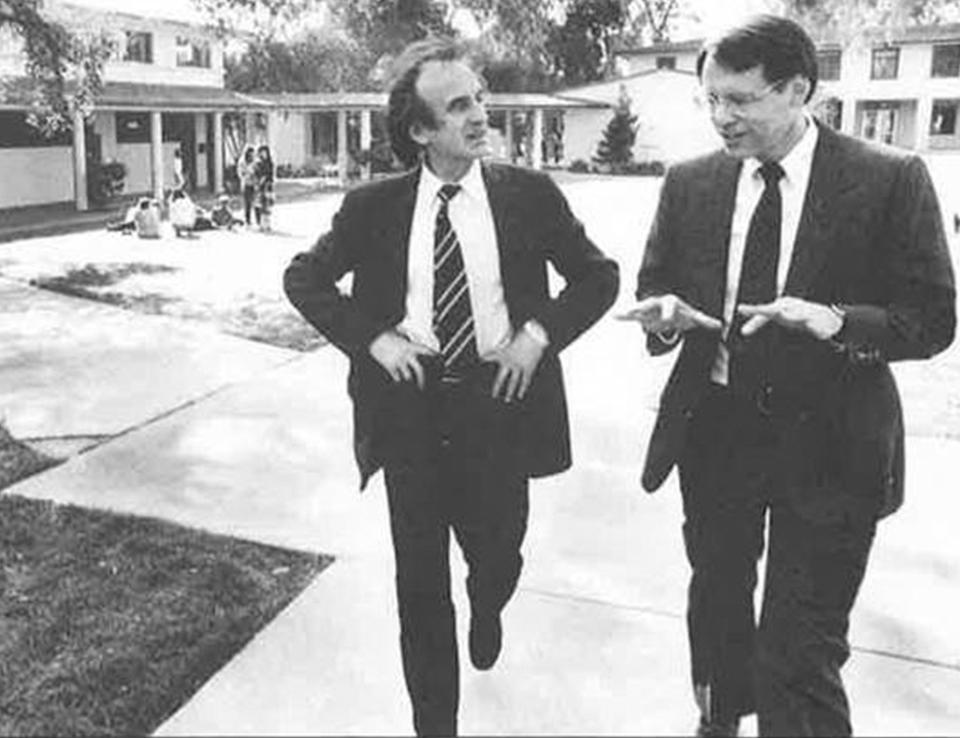Elie Wiesel’s Impact on Claremont McKenna College

Join us as we commemorate the life and legacy of Elie Wiesel (1928-2016), Holocaust survivor, Nobel Peace Prize winning author, professor, and renowned humanitarian. Elie Wiesel worked on behalf of oppressed people for much of his adult life. His personal experience of the Holocaust led him to use his talents as an author, teacher, and storyteller to defend human rights and peace throughout the world.
A native of Sighet, Transylvania (Romania), Wiesel and his family were deported by the Nazis to Auschwitz when he was fifteen years old. His mother and younger sister perished there; his two older sisters survived. Wiesel and his father were later transported to Buchenwald, where his father died. After the war, Wiesel studied in Paris and later became a journalist in that city; yet, he remained silent about what he had endured as an inmate in the death camps. During an interview with French writer Francois Mauriac, Wiesel was persuaded to end that silence and he subsequently wrote Night. Since its publication in 1958, it has been translated into twenty-five languages and millions of copies have been sold. In his lifetime, Wiesel received numerous awards including the Presidential Medal of Freedom, the U.S. Congressional Gold Medal, the National Humanities Medal, the Medal of Liberty, and the rank of Grand-Croix in the French Legion of Honor and went on to author more than 60 books.
Co-sponsored by the Mgrublian Center for Human Rights.
